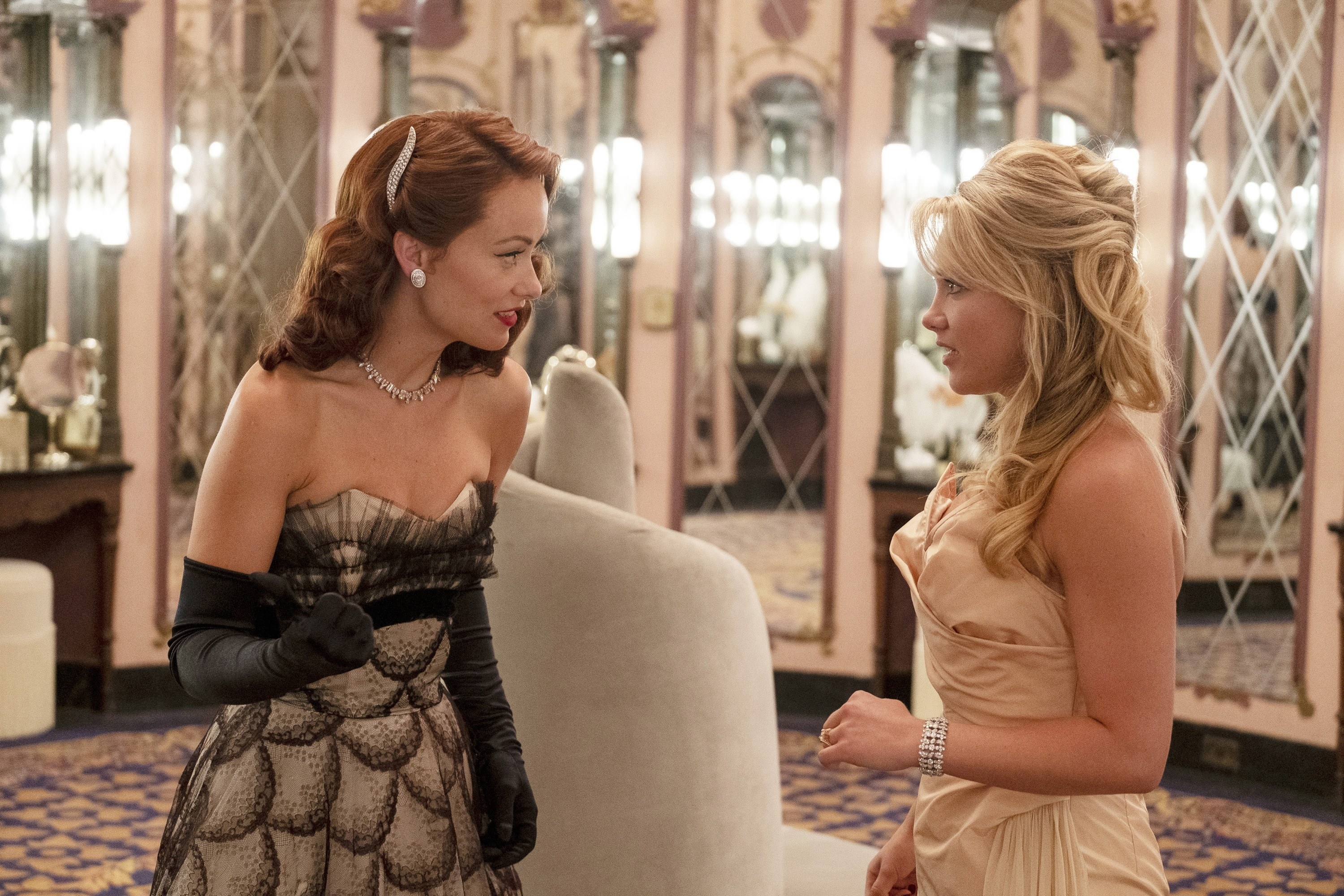Why We All Owe Florence Pugh A Major Apology
Don't Worry Darling has become the subject of controversy, memes, and not-so-stellar reviews, but until today, it has not been available for the general public to see. And now that it is...it's left many, me included, wondering what all the fuss was about.
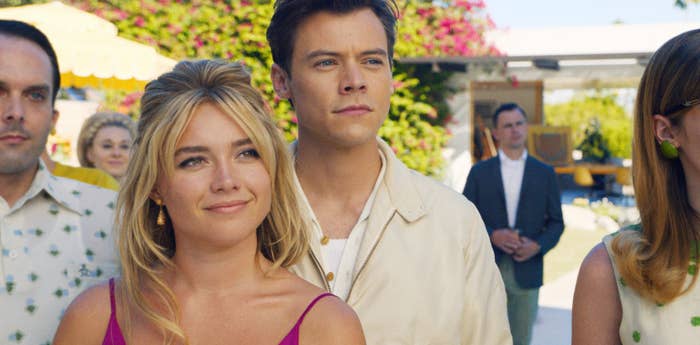
Much of the controversy has been about an alleged feud between star Florence Pugh and director Olivia Wilde. While nothing has been confirmed — and, in fact, Wilde has referred to the talk as "baseless rumors" — it's been reported that Florence was unhappy with Olivia due to both A) Olivia's focus on Styles and their relationship (which I can't really comment on, not knowing what went down) and B) much of the press of the film focusing on its sex scenes.

This press has been largely contributed to by Wilde herself, who has spoken about the sex scenes in multiple interviews. “Female pleasure, the best versions of it that you see nowadays, are in queer films. Why are we more comfortable with female pleasure when it’s two women on film? In hetero sex scenes in film, the focus on men as the recipients of pleasure is almost ubiquitous," she began, saying of her film, "Men don't come in this film — only women here!"
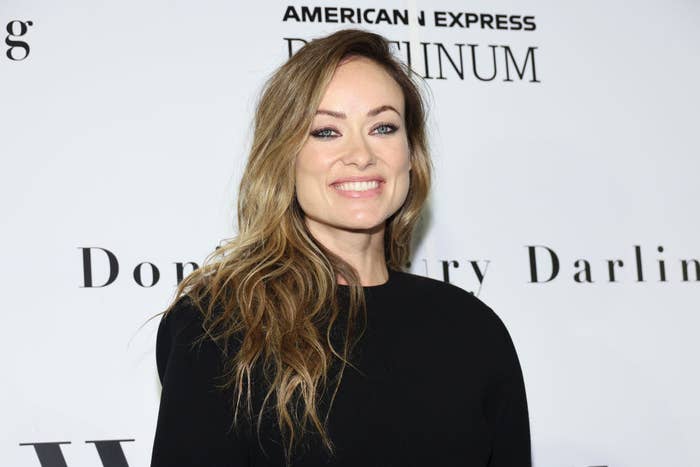
“It’s all about immediacy and extreme passion for one another,” Wilde continued. “The impractical nature of their sex speaks to their ferocious desire for one another. I think it’s integral to the story itself and how the audience is meant to connect to them. My early conversations with the cast were all about how the audience has to buy into the fantasy.”
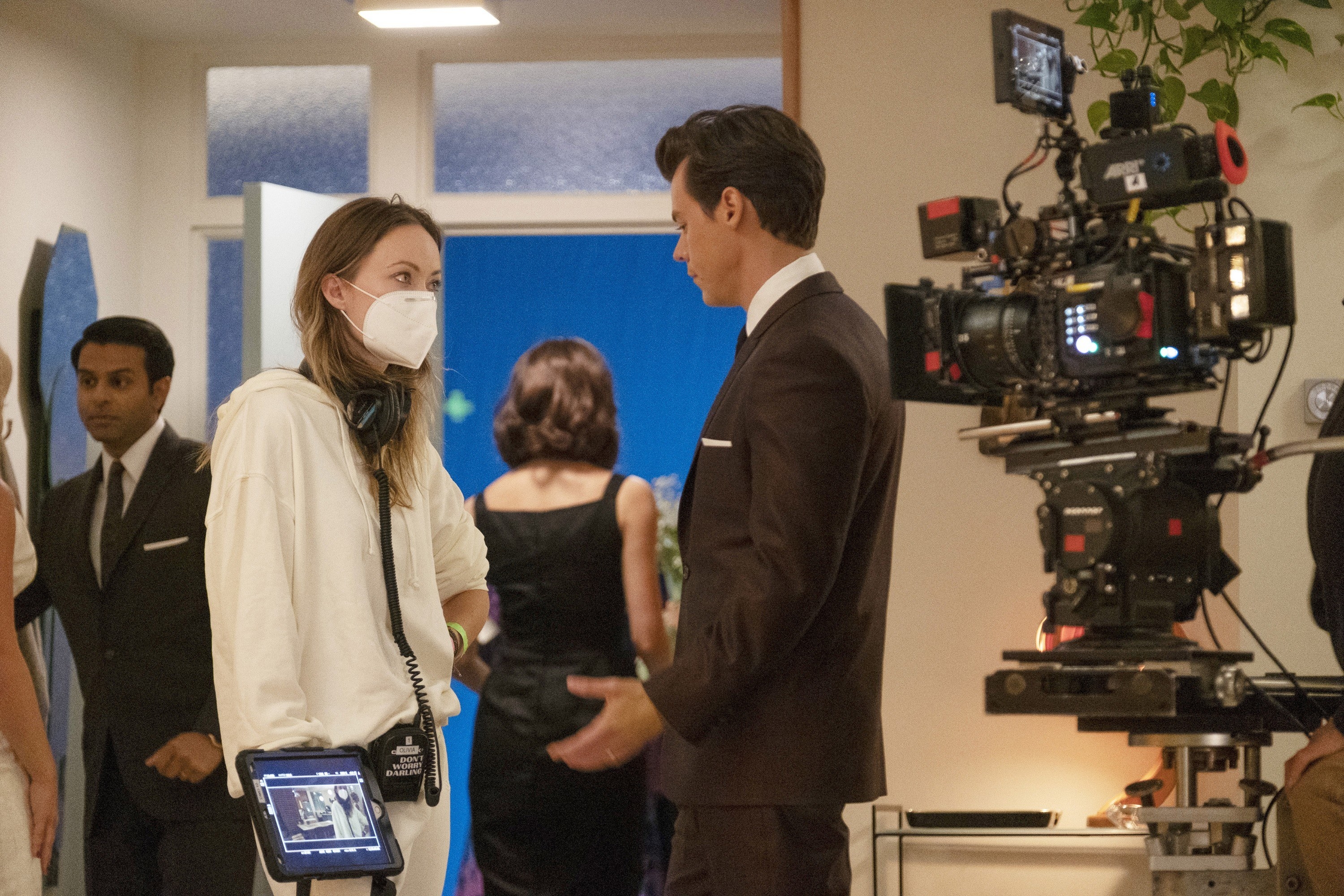
She also said these scenes were meant to make the audience "realize how rarely they see female hunger, and specifically this type of female pleasure." The director was so proud of the sex scenes, in fact, that she was upset the MPAA forced her to cut some sex-related shots from the trailer, saying, "We want to be provocative. The idea is not to make you feel safe."
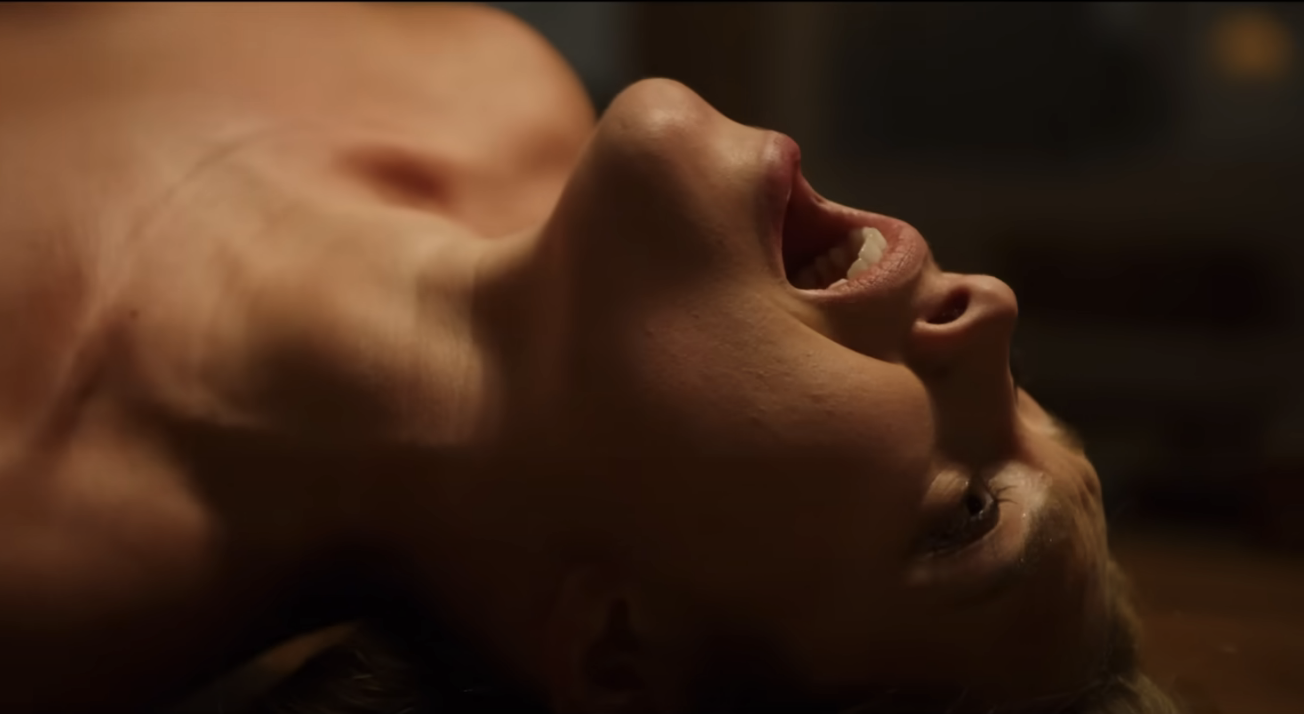
But after seeing the film...Wilde's comments are a bit of a head-scratcher. First of all, there are only two sex scenes, and frankly they aren't that radical besides the fact that they feature female pleasure, which is commendable. Overall, though, the scenes do little other than to establish that Alice is happy, at first, to live in this fantasy world. This is clearly their intent, as evidenced by Wilde's quote about wanting the audience to "buy into the fantasy."
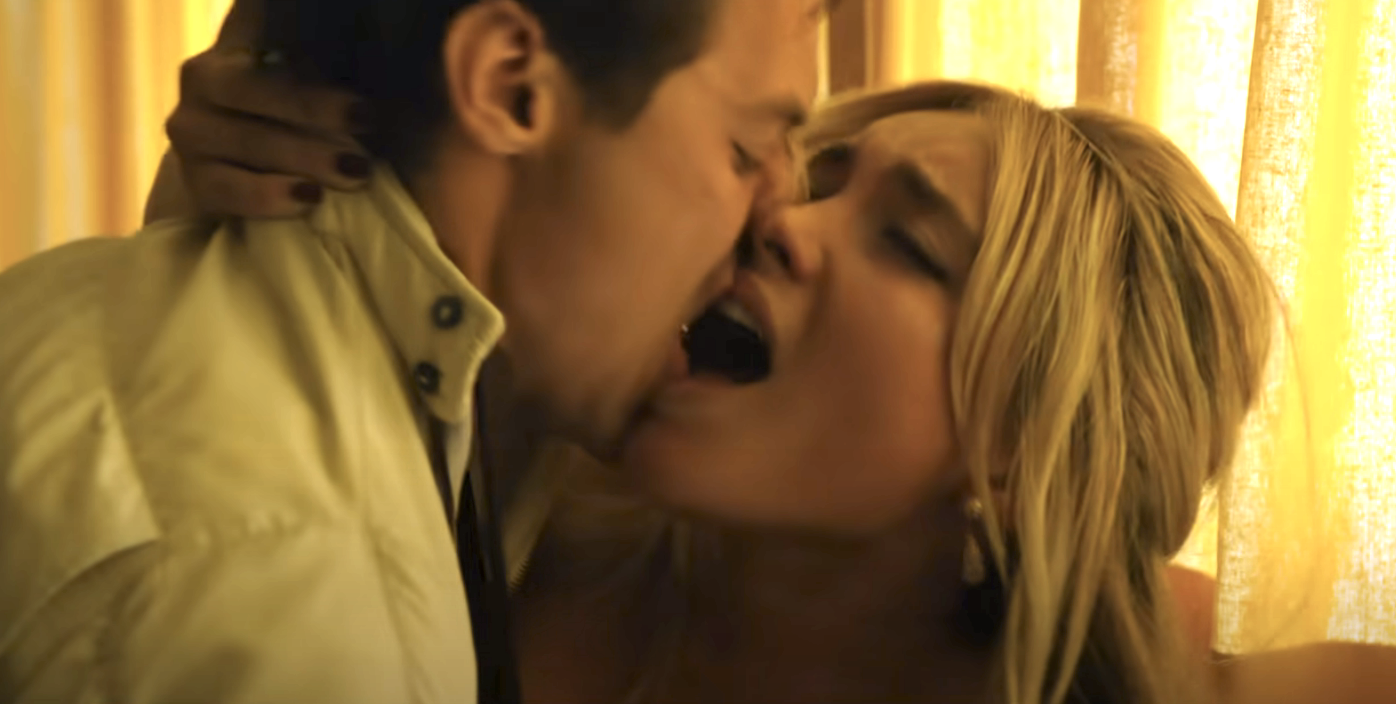
But without establishing much else in Alice and Jack's relationship, the sex scenes end up making Alice's motivations seem reductive, almost as if the film is suggesting that Alice isn't questioning things because, quite simply, the sex is good.
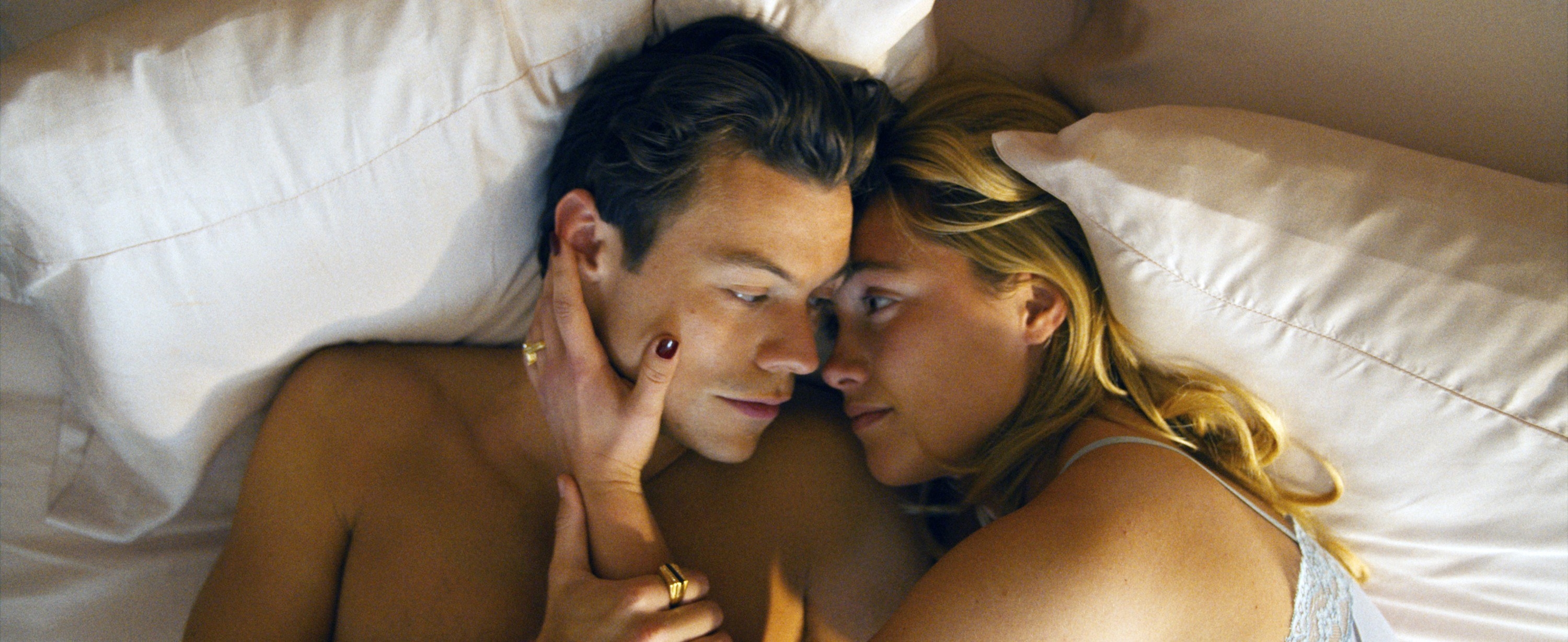
Frankly, there is little else to Jack and Alice's relationship beyond the sex. We believe that Alice loves Jack, thanks to a strong performance from Pugh, but we're left wondering why. Casting global superstar Harry Styles actually could have worked here — but for all his charm on stage, Styles seems to possess none of it on camera.
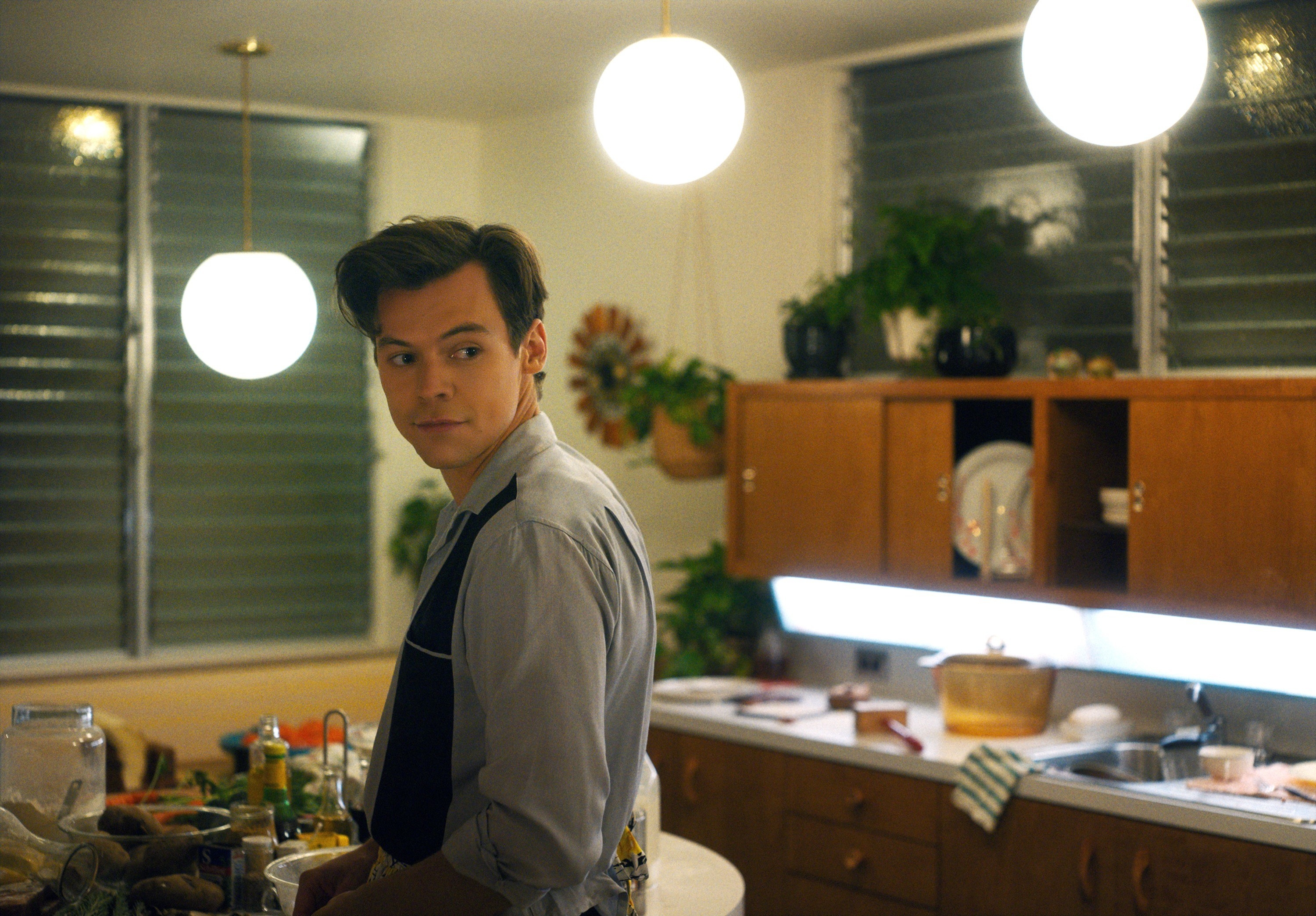
Ultimately, the sex is almost inconsequential to the plot, which is why it seems an odd choice that it was even included in the trailer. Frankly, it felt like a marketing ploy, much as attractive women and sex scenes are often added to trailers to thrill. There's nothing radical about that. And Wilde's comments about the scenes, bringing renewed attention to them, almost serve to fetishize women's pleasure rather than normalize it, only further causing people to want to see the film not for Florence's frankly stellar performance, but for her sex scenes.
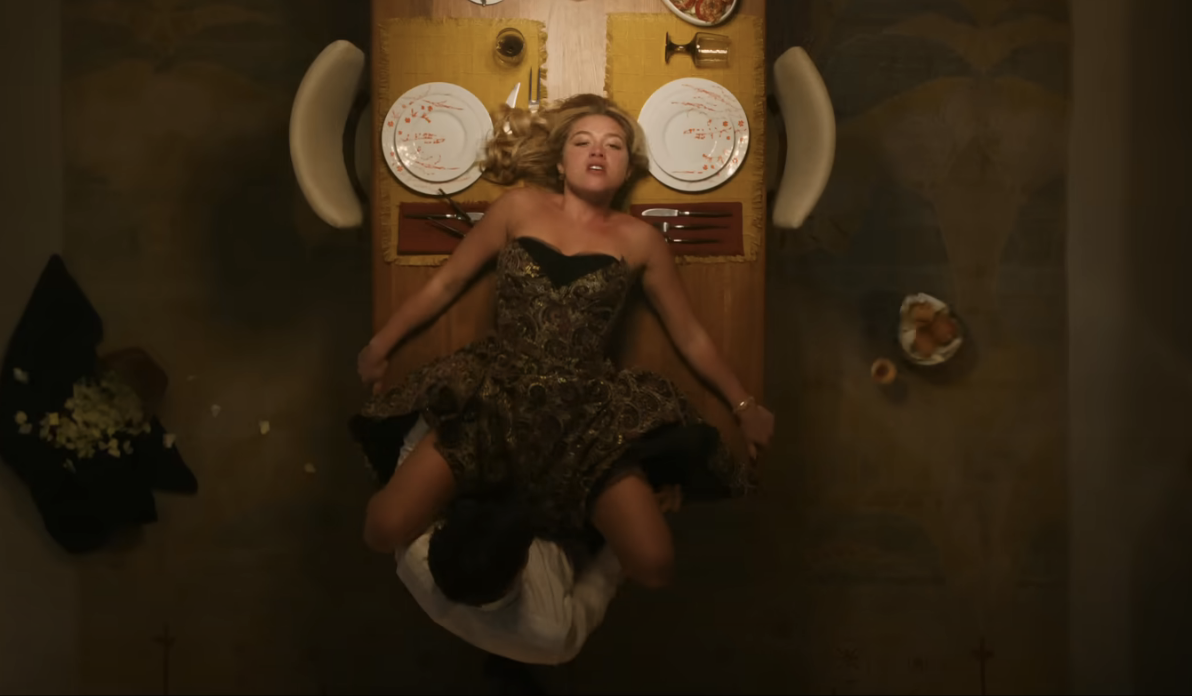
Florence herself spoke about her frustration with the focus on one of the sex scenes, saying, "When it’s reduced to your sex scenes, or to watch the most famous man in the world go down on someone, it’s not why we do it. It’s not why I’m in this industry." Many took this as a direct response to Wilde's continued comments about the scenes, though it could also just be a reference to the media response to the scenes.
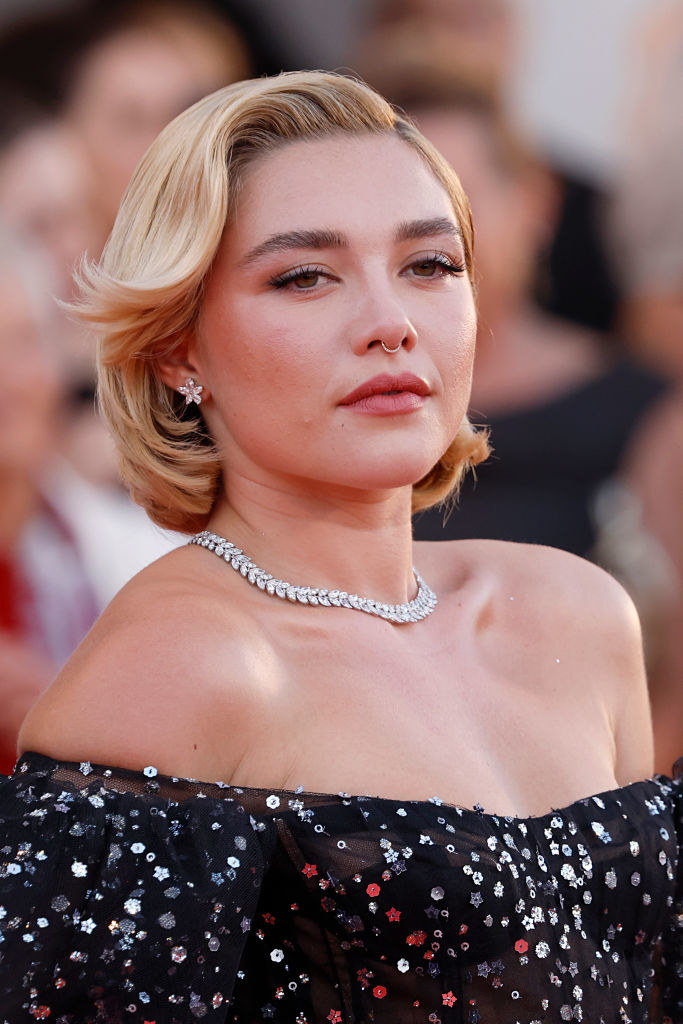
Don't Worry Darling is clearly Florence's show — press and trailers should have focused almost exclusively on her performance, as the film does. It's clear the camera wants to be on her, often panning to her even during Styles' most emotional moments.
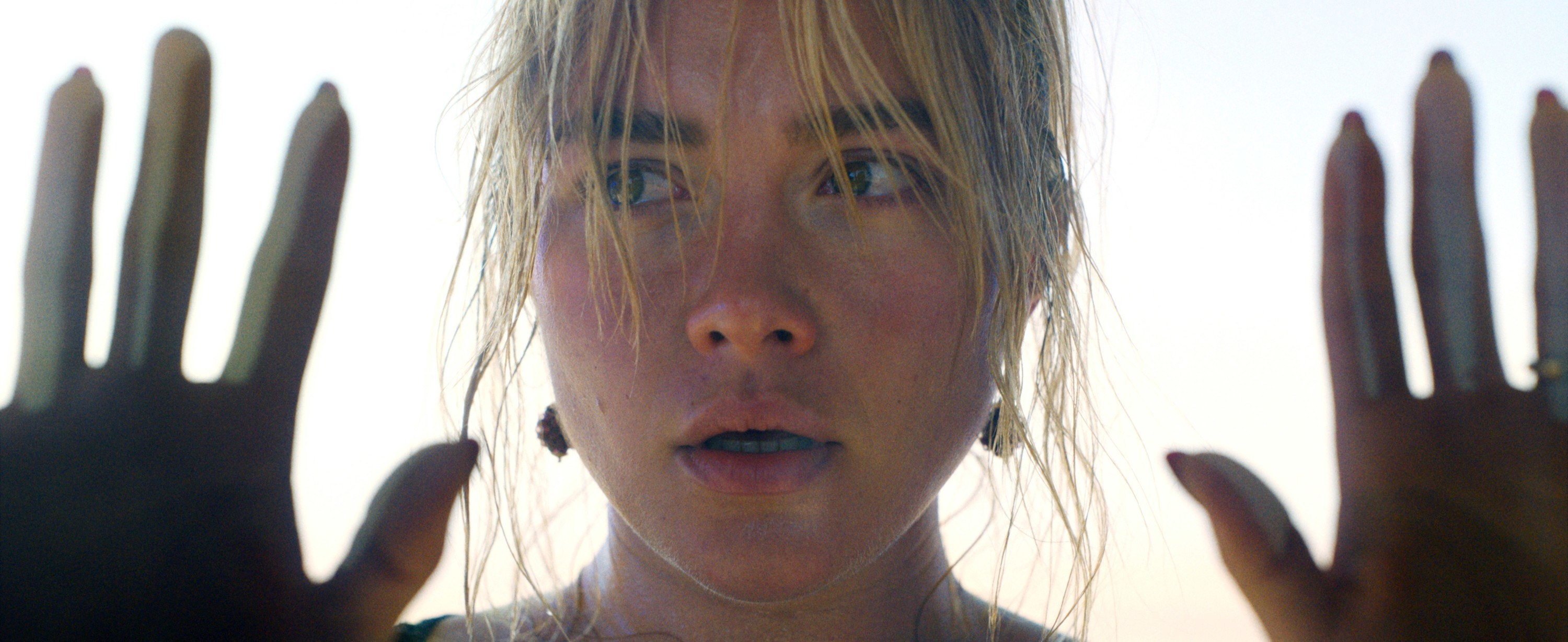
Even the fact of the "feud" itself has distracted from this. It's unfortunate that what could've been a celebrated performance from Pugh is not only sabotaged by a not-fully-realized script, but a marketing plan that didn't seem to recognize this, as well as a media that prefers to focus on the drama (of which I, myself, am a part) and the sex.
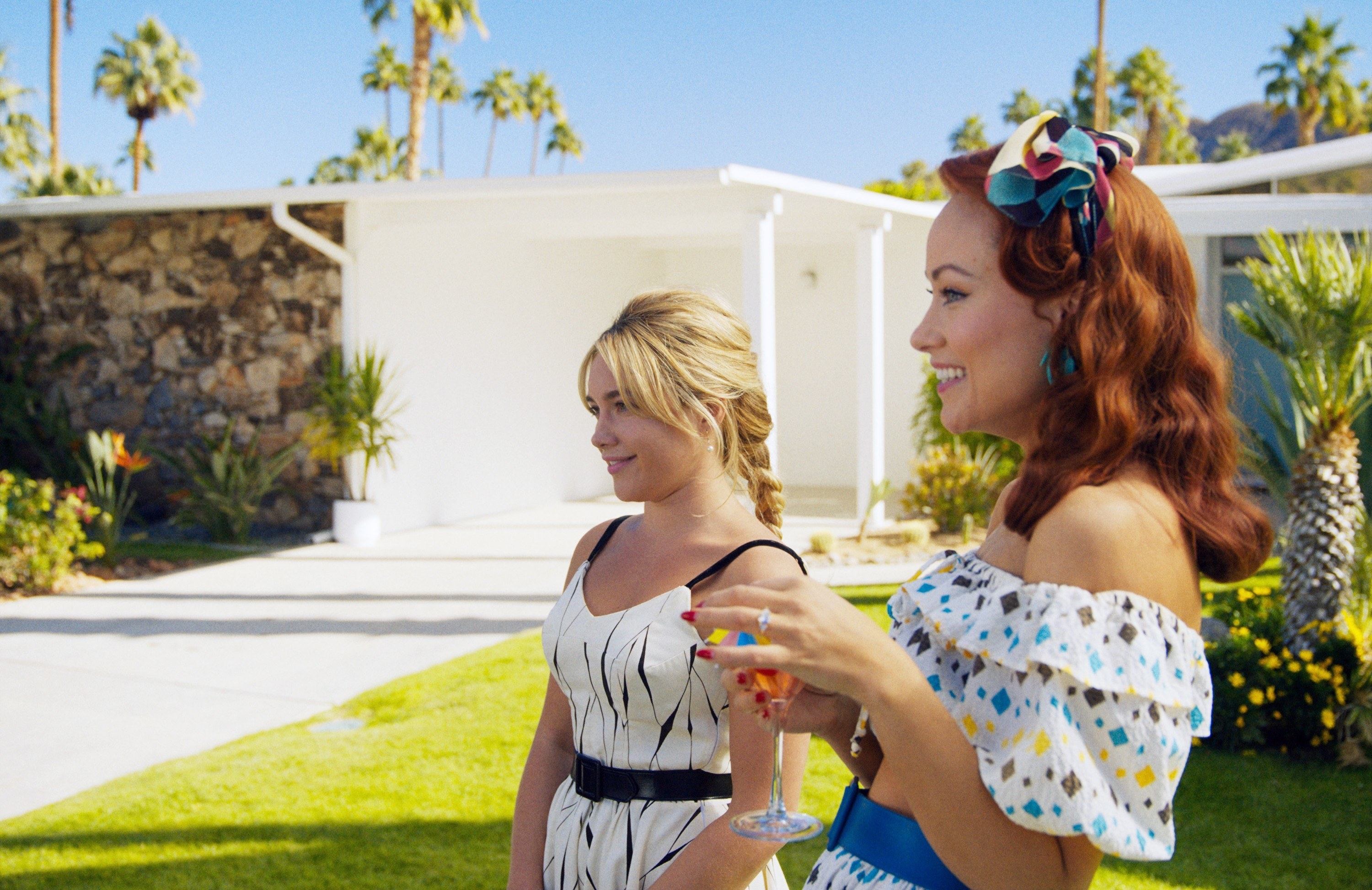
But especially disappointing is the fact that it seems, at least to me, that Wilde only added fuel to this media frenzy. In the end, I believe we all owe Pugh an apology — and praise for single-handedly carrying what could've been a very strong movie on her back.
